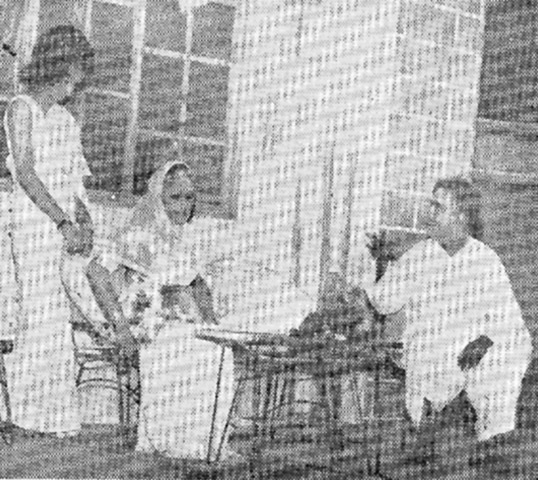
WHAT a difference a week makes! Seven days earlier, Karachiites were trying to brave a terribly dry weather with almost nonexistent humidity. It was swiftly followed by excess of humidity in the next few days. And this was all happening in May, when the sun is at its scorching best (or worst, take your pick).
On May 17, 1968 excessive moisture in the air made the atmosphere very sticky and almost as uncomfortable for the citizens as the dry, blazing desert winds a week back. The relative humidity that day was 72 per cent, which at 5am was as high as 91 per cent.
Those were the days when there used to be ‘lunch-carriers’ (think of home delivery service today). They would take tiffin boxes (remember those?) from residences and take them to offices and bring them back, charging from rupees seven to 15 per month, depending on the distance between office and residence. They would usually rest up once they’d brought the boxes back and had lunch themselves. But it was so hot on May 14, that some of them were found resting or having a quick kip on steps of some of the commercial buildings. The media highlighted their little ‘siesta’ by giving them decent coverage in newspapers.
On the subject of the media, on May 16, Syed Darbar Ali Shah, commissioner of Karachi, advocated a better understanding and liaison between journalists and the local administration. He was speaking at the handing over ceremony of the allotment orders of the Karachi Development Authority’s plots to working journalist at the Karachi Press Club. The commissioner said the newsmen could help the local administration in solving various problems. He underlined the importance of “vigilant, fair and impartial” journalism which could give “valuable service to the nation”. He added that the government and the local administration had always been conscious of the importance and problems of the newsmen. It was in recognition of their services that the government had decided to rehabilitate journalists by allotting them lands in suitable localities in different parts of the country. The commissioner pointed out that the demand of the working journalists for plots of land had been partially met as there were limited spaces available. The local administration realised that those who had not been accommodated in the first phase were feeling frustrated, so it would accommodate the remaining applicants as soon as new plots of land were available for them.
Doesn’t all of that sound eerily familiar?
Another familiar aspect of Karachi, as has often been mentioned, is its rich culture of the performing arts. On May 14, an Urdu adaptation of Maxim Gorky’s The Petty Bourgeois titled Safaid Posh was presented at the Arts Council. According to a drama critic, it had flashes of brilliance supported by some good acting. But the play did not seem to tie up all things. The tempo faltered at times and the focus was not always on the right characters. In translating the play and adapting it into local setting, writer-producer Ali Ahmed had admirably retained glimpses of Gorky’s perception and social commentary as far as dialogue was concerned, but the situations remained inherently foreign.
Wow! These critics can be really unforgiving.
Published in Dawn, May 14th, 2018













































Dear visitor, the comments section is undergoing an overhaul and will return soon.